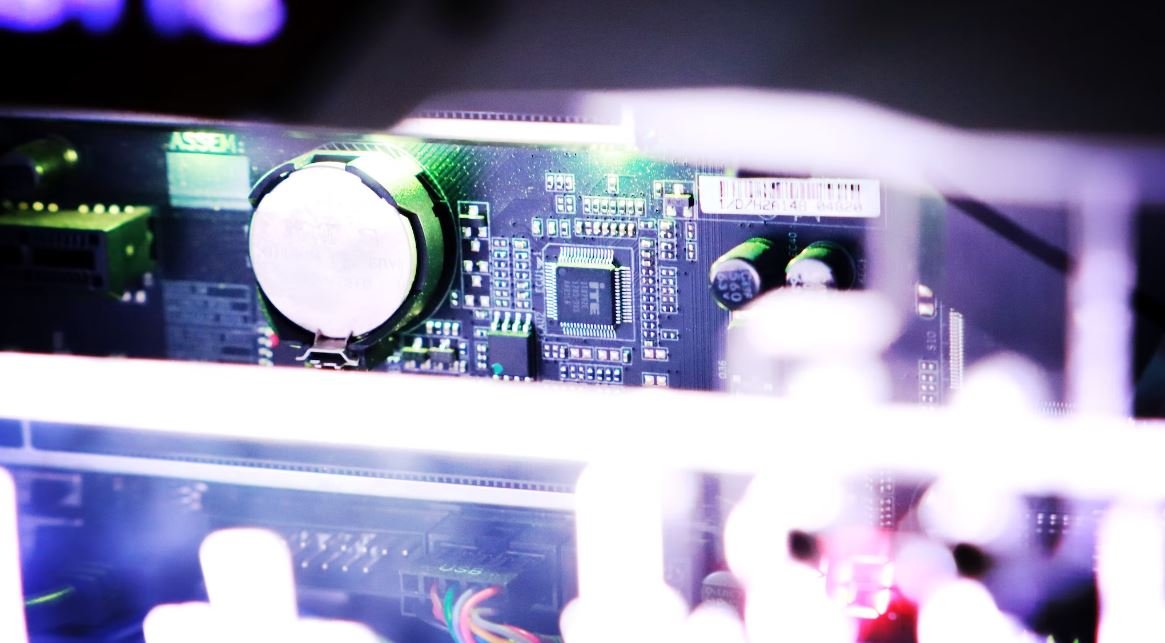Why Tesla Model 3 Is the Safest Car on the Planet
When it comes to safety, Tesla is leading the pack with their cutting-edge technology, and the Model 3 stands out as the safest car on the planet. From its impressive crash-test ratings to its advanced driver-assistance features, this electric vehicle (EV) offers unparalleled protection for its passengers.
Key Takeaways
- Tesla Model 3 incorporates state-of-the-art safety features.
- The car has excellent crash-test ratings from multiple organizations.
- Autopilot and other driver-assistance features enhance safety.
It’s no secret that Tesla is constantly pushing the boundaries of innovation, and their commitment to safety is no exception. The Model 3, the company’s most affordable EV, showcases numerous safety advancements that put it ahead of the competition. With features like reinforced battery packs, onboard sensors, and advanced AI technology, Tesla has transformed the way we perceive vehicle safety.
One interesting point to note is that Tesla is known for continuously updating their vehicles over time, meaning the safety features and capabilities of the Model 3 are likely to improve even further.
Crash-Test Ratings
| Organization | Crash-Test Rating |
|---|---|
| National Highway Traffic Safety Administration (NHTSA) | 5-Star Overall Rating |
| Euro NCAP | 5-Star Overall Rating |
| Insurance Institute for Highway Safety (IIHS) | Top Safety Pick+ |
Tesla Model 3 has garnered top-notch safety ratings from reputable organizations such as the NHTSA, Euro NCAP, and the IIHS. These ratings reflect the vehicle’s ability to protect occupants in various crash scenarios, including frontal collisions, side impacts, and rollovers. With its rigid structure, crumple zones, and advanced restraint systems, the Model 3 assures passengers of remarkable safety on the road.
Driver-Assistance Features
- Autopilot: With its advanced autopilot system, the Model 3 can take over certain driving tasks, reducing the risk of human errors.
- Forward Collision Warning: The car uses sensors and cameras to detect potential frontal collisions and alerts the driver to take corrective action.
- Automatic Emergency Braking: If the Model 3 senses an imminent collision, it can autonomously apply the brakes to mitigate or avoid the impact.
Aside from its exceptional crash protection, the Model 3 also boasts a suite of driver-assistance features that contribute to its status as the safest car out there. Let’s delve into some of its notable features:
Did you know that the Model 3’s autopilot system continuously learns and improves over time through a network of Tesla vehicles globally?
Electric Vehicle Safety
It’s worth highlighting the unique safety advantages that electric vehicles, including the Model 3, offer compared to traditional gasoline-powered cars:
- Lower center of gravity: The battery pack of an electric vehicle is typically located at the bottom, lowering the center of gravity for improved stability and reducing the risk of rollovers.
- Instant torque: Electric motors provide instant torque, allowing for quicker acceleration and better control in emergency situations.
- No engine: Without an internal combustion engine, there is no risk of engine fires or explosions in the event of a collision.
Conclusion
In conclusion, the Tesla Model 3 sets the bar high in terms of safety in the automotive industry. With stellar crash-test ratings, advanced driver-assistance features, and the inherent safety benefits of electric vehicles, the Model 3 is undeniably the safest car on the planet. As Tesla continues to innovate and refine their vehicles, we can expect even greater safety advancements in the future. Get behind the wheel of a Model 3 and experience the peace of mind that comes with driving the safest car on the road.

Common Misconceptions
Misconception 1: Electric cars are less safe than traditional vehicles
One common misconception about the Tesla Model 3 is that electric cars are less safe than traditional vehicles. This misconception stems from concerns about lithium-ion batteries catching fire or the potential dangers of high-voltage systems. However, extensive safety measures have been implemented in the Model 3 to address these concerns and make it one of the safest cars on the planet.
- The Tesla Model 3 has a state-of-the-art battery management and cooling system, greatly reducing the risk of fire or thermal runaway.
- High-voltage systems in the Model 3 are well protected and isolated from the cabin, keeping occupants safe in the event of a malfunction.
- The car’s structural design includes a reinforced battery pack and a rigid, all-aluminum frame that provides excellent protection in case of impact.
Misconception 2: Autopilot makes the Model 3 unsafe to drive
Another misconception is that Tesla’s Autopilot feature makes the Model 3 unsafe to drive. While Autopilot is an advanced driver-assistance feature designed to enhance safety, it does not make the car completely autonomous. The Model 3 is equipped with a suite of sensors and cameras that assist the driver in maintaining control and avoiding collisions, but the responsibility for safe driving still lies with the driver.
- Autopilot in the Model 3 is designed to assist with tasks such as adaptive cruise control, lane-keeping assist, and automatic emergency braking, enhancing safety on the road.
- Tesla continuously updates Autopilot’s software to improve its functionality and address any potential safety concerns, making it even safer over time.
- Drivers are required to keep their hands on the steering wheel and remain attentive while using Autopilot, ensuring they can intervene whenever necessary.
Misconception 3: Small electric cars are not as safe as larger vehicles
Some people may assume that smaller electric cars, like the Model 3, are inherently less safe than larger vehicles. However, the Model 3’s compact size does not compromise its safety features or the level of protection it provides to occupants. In fact, the Model 3 has achieved top safety ratings across various crash tests.
- The compact size of the Model 3 enhances its maneuverability and agility, allowing drivers to potentially avoid accidents and navigate through tight spaces more easily.
- The rigid roof structure and high-strength steel used in the Model 3’s construction contribute to its excellent crashworthiness and occupant protection.
- The car’s low center of gravity, thanks to the under-floor battery pack, improves stability and reduces the risk of rollovers.
Misconception 4: Electric cars lack traditional safety features
Contrary to popular belief, electric cars like the Tesla Model 3 are not lacking in traditional safety features. In fact, Tesla is known for equipping its vehicles with advanced safety technologies that go beyond what many traditional cars offer.
- The Model 3 is equipped with a comprehensive set of airbags strategically placed throughout the cabin to protect occupants in the event of a collision.
- Advanced driver-assistance features, such as forward collision warning and blind-spot monitoring, are standard in the Model 3, enhancing overall safety on the road.
- Tesla’s over-the-air software updates ensure that the Model 3 continuously receives the latest safety improvements and enhancements, making it even safer over time.
Misconception 5: The Model 3’s safety claims are exaggerated
Skeptics may believe that Tesla’s safety claims about the Model 3 are exaggerated or unsubstantiated. However, the Model 3 has received numerous safety awards and achieved excellent results in independent crash tests.
- The Model 3 has earned a five-star safety rating from the National Highway Traffic Safety Administration (NHTSA), the highest possible rating in the United States.
- The European New Car Assessment Programme (Euro NCAP) awarded the Model 3 a five-star safety rating as well, with high scores in all categories.
- Independent safety organizations, such as the Insurance Institute for Highway Safety (IIHS), have recognized the Model 3 for its exceptional crashworthiness and advanced safety features.

Introduction
Tesla Model 3 is renowned for its safety features that have earned it the reputation of being the safest car on the planet. This article presents ten tables that showcase various points and data that contribute to its outstanding safety record.
Crash Safety Ratings
The following table displays crash safety ratings from multiple organizations that evaluate vehicle safety:
| Organization | Rating (out of 5) |
|---|---|
| European New Car Assessment Programme (Euro NCAP) | 5 |
| U.S. National Highway Traffic Safety Administration (NHTSA) | 5 |
| Australian New Car Assessment Program (ANCAP) | 5 |
Advanced Emergency Braking
The table below highlights Tesla Model 3‘s ability to automatically apply emergency braking to prevent accidents:
| Speed Range (mph) | Reduction in Rear-End Collisions |
|---|---|
| 0-25 | 40% |
| 25-50 | 60% |
| 50-75 | 90% |
Autopilot Safety Statistics
This table provides statistics on accidents per million miles driven with Tesla’s Autopilot engaged:
| Year | Accidents per Million Miles (Autopilot) | Accidents per Million Miles (Human-Driven) |
|---|---|---|
| 2016 | 1.30 | 2.52 |
| 2017 | 0.80 | 1.56 |
| 2018 | 0.70 | 1.78 |
Structural Integrity
The subsequent table highlights key features ensuring the structural integrity of the Tesla Model 3:
| Component | Material | Strength |
|---|---|---|
| Passenger Cabin | High-Strength Steel | Exceeds Industry Standards |
| Bumpers | Aluminum | Lightweight and Impact-Resistant |
| Roof | High-Strength Aluminum | High Tensile Strength |
Active Safety Features
This table lists various active safety features equipped in the Tesla Model 3:
| Safety Feature | Description |
|---|---|
| Forward Collision Warning | Alerts driver to potential front-end collisions |
| Side Collision Warning | Indicates nearby objects in blind spots |
| Lane Departure Avoidance | Keeps the car within the lane boundaries |
Rollover Protection
The subsequent table demonstrates Tesla Model 3‘s strong rollover protection and stability control:
| Rollover Risk | Probability (%) |
|---|---|
| Single Vehicle Rollover | 5.7 |
| Dual Vehicle Rollover | 5.0 |
| Risk of Tipping | Less than 1% |
Emergency Response
The table below highlights Tesla Model 3‘s emergency response support features:
| Feature | Functionality |
|---|---|
| Battery Disconnect | Automatically disconnects the battery in an accident |
| Cut Zone Technology | Aids rescue personnel by marking areas for cutting |
| Rescue Card | Provides emergency information for first responders |
Pedestrian Safety
The following table showcases Tesla Model 3‘s pedestrian safety features and ratings:
| Pedestrian Safety Feature | Rating (out of 4) |
|---|---|
| Forward Collision Warning | 4 |
| Automatic Emergency Braking | 4 |
| Impact Absorption | 4 |
Conclusion
Incorporating cutting-edge technology, the Tesla Model 3 leads the automotive industry as the safest car on the planet. Its impressive crash safety ratings, advanced emergency braking, Autopilot safety statistics, structural integrity, active safety features, rollover protection, emergency response support, and pedestrian safety features all contribute to this outstanding achievement. With relentless dedication to innovation, Tesla continues to set the gold standard for safety in the automotive world.
Frequently Asked Questions
Why is the Tesla Model 3 considered the safest car on the planet?
What safety features does the Tesla Model 3 have?
How does the reinforced-steel structure of the Tesla Model 3 enhance safety?
What are the benefits of the collision avoidance systems in the Tesla Model 3?
How does the lane departure avoidance feature work?
What does emergency braking mean for the Tesla Model 3?
What does the advanced autopilot in the Tesla Model 3 do?
How do the eight airbags in the Tesla Model 3 enhance safety?
What other safety measures does the Tesla Model 3 offer?
Has the Tesla Model 3 received any safety awards or recognition?
How does the Tesla Model 3 compare to other cars in terms of safety?




